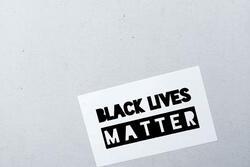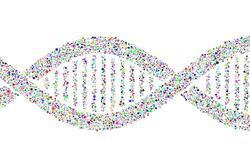"Remember That We Suffered": Grappling with Privilege and Intergenerational Trauma as a Jew
One day, while watching one of my favorite TV shows, Crazy Ex-Girlfriend, I was struck by the song “Remember That We Suffered.” The song is essentially about the Jewish tendency to mention sad things at happy events: in this particular number, the cast sings about remembering the Holocaust while at a bar mitzvah. At first, the song seemed disrespectful to me. Is it really okay to make fun of tragic events? Its irreverence made me question why Jews tie so much of our identities to trauma. I started to wonder if this really benefits us, or if it’s instead a detriment to the way in which we view our identity.
When we constantly view our identities through a lens of trauma, we identify as victims. It’s generally agreed upon that the most traumatic event in Jewish history is the Holocaust—but does it need to be part of every contemporary conversation? Does it need to always be present somewhere in our minds when we think about our Jewish identity? I don’t mean to imply that we shouldn’t know our history; learning about our ancestors is how we appreciate what we have and understand the collective Jewish story. At some point, though, I think this emphasis on looking backward becomes harmful.
Defining ourselves by our trauma creates a couple problems: 1) our Jewish identity becomes linked to sadness, mourning, and defensiveness, 2) we sometimes claim traumas that are not ours personally, and 3) we fail to recognize the privileges we do have. If we always assume that someone is trying to persecute or discriminate against us, it becomes harder to celebrate our identity. The quest to fight antisemitism versus living our lives in fear are not the same thing. The adversity our parents, grandparents, and great-grandparents faced is simply not what the majority of American Jews currently face. Today, many of these Jews are privileged; many of us fortunately aren’t othered by our Jewishness in the way our ancestors were. Of course, we inevitably inherit the wounds of older generations, but it’s up to us to understand that these are often not our own lived traumas.
I live in a small town where there are very few Jews, and so I’m a religious minority. Indeed, Jews make up 2.4% of the United States adult population; we’re nationally a religious minority. It’s important to acknowledge that minority status and to create strong communities to support each other. However, we don’t have to center those communities around trauma. We should both celebrate our traditions and our discoveries of Jewishness, while acknowledging the privileges we may possess as well.
Of course, “Jewish” is not a monolithic identity. Some Jews “pass” and some Jews don’t. For those that pass, we blend into the majority, knowing that we likely won't be targets of antisemitic discrimination. However, more visible “Jewishness,” or stereotypically Jewish features or ways of dress, can result in discrimination or harassment. For white Jews, there’s another layer. The "default Jewish experience” often aligns with that of a white person; it often fails to acknowledge the adversity Jews of color face. So, even for white Jews who don’t “pass,” they maintain inherent privilege in being white. The issue of passing brings up a larger question: when we place too much emphasis on our identities, are we only dividing ourselves? If we constantly subdivide and argue about who has what privileges, are we creating a cohesive community, or are we just splitting ourselves apart?
This narrative of victimhood is especially important in the stories we tell. In the LGBTQ+ community, there’s a growing sense that too many depictions of queer characters focus on trauma. These characters usually have a sad coming out story, get beat up by bullies, or face a tragic end to a romantic relationship. These stories define the community by our trauma. When there are already so few depictions of queer characters and stories, that’s a problem. Instead, it would be much more culturally productive to have more movies, books, and TV shows that show queer people just living their lives. Shows like Santa Clarita Diet or Dead to Me, in which the characters’ sexualities are irrelevant, are the kind of representation the LGBTQ+ community needs most right now. I think the same concept applies to other marginalized groups—it’s regressive when we limit ourselves to only telling trauma-related stories.
Obviously, antisemitism is still prevalent. Recently, we saw the terrifying hostage situation at a Texas synagogue. We see swastikas graffitied in various locations, hear antisemitic slurs, witness Judaism as the punchline of jokes, and more. The common theme among these situations, though, is that they usually occur randomly. I don't see evidence that there is pervasive, systemic discrimination against Jews. There will always be senseless acts of bigotry in this world, but it seems to me that the majority of Jews have reached a point of equality on a broader, systemic level.
I recognize that these reflections come from a place of privilege. I’ve never been discriminated against for my gender, sexuality, or religion, and I know that that gives me a different perspective. I don’t have to think about how I want to present my identities because they have never been a problem for me, but I still believe that it’s harmful for the Jewish community to define ourselves by our trauma. Doing so prevents us from approaching our identities joyously. We can acknowledge the horrors that our ancestors endured without letting that knowledge stop us from living fully and compassionately in the present. Indeed, to best honor our ancestors and ourselves, we should free ourselves of the emotional burden of constantly discussing past trauma—this way, we can ultimately be ourselves.
This piece was written as part of JWA’s Rising Voices Fellowship.








This article has been exactly what I was searching for. I am Jewish and just recently had my second child, and I'm exploring ways to raise my kids Jewish without so much fear of trauma. I will speak with my rabbi today to ask him about that. However, most religions create stories with fear and polarization, and I don't want my kids to be exposed to that ideology. In my profession, as a CFO, I guide CEOs to create a very positive and expansive relationship with money, and the results continue to inspire me with the wins for all involved. To create a similar end, I'd like my family and myself to experience this in my religion. I welcome your thoughts. Thank you for writing this!
What planet are you living on? Antisemitism and anti Gay sentiments are at an all time high Every day there’s a new incident that takes place not just in synagogues! You have people driving cross country just to target a Jewish community in Brooklyn!